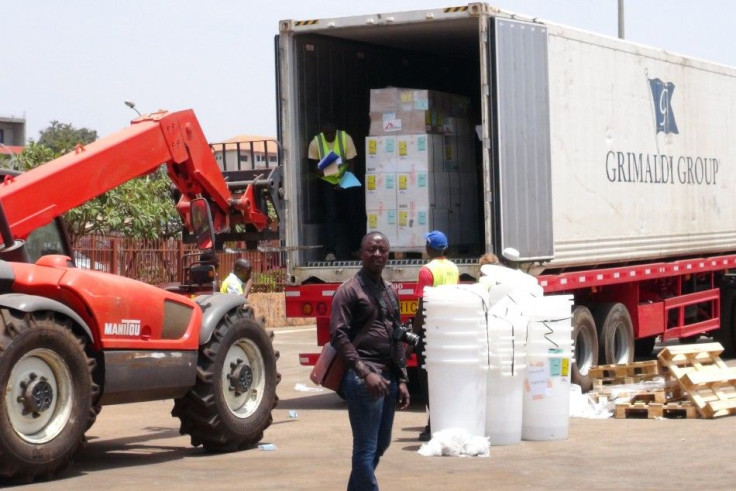Ebola Update: Death Toll in West Africa Now Hits 2,296, and Counting

The number of people killed by the deadly Ebola virus in West Africa has reached 2,296, the World Health Organisation said on Wednesday, with the tally expected to still increase in the coming days.
Those whom the WHO foresee could add to the death toll would most likely come from Liberia.
At present, the total number of Ebola cases in West Africa has now reached 4,293 - identified as either confirmed, probable or suspected. As with the number of possible deaths, the current number of cases likewise has the potential to surge to as high as 20,000, WHO said.
In just the last three weeks, Guinea, Liberia and Sierra Leone all reported incurring a 49 per cent jump in cases.
Of the three however, it is Liberia that is hardest hit, owing to over half of the deadly virus deaths at 1,224 and half of all cases at 2,046.
Guinea has 862 cases and 555 deaths, Sierra Leone has 1,361 cases and 509 deaths, Nigeria 21 cases and 8 deaths and Senegal 3 cases - one confirmed and two suspected.
Ebola cases in Liberia have increased exponentially in Liberia, according to the WHO, where the government's and partners' capacity to respond have been completely outstripped by the demands of the outbreak.
Brownie Samukai, Liberian minister of national defence, said the catastrophe is threatening the very existence of Liberia.
"The deadly Ebola virus has caused a disruption of the normal functioning of our state," he told the 15-member UN Security Council in New York.
"It is now spreading like wild fire, devouring everything in its path. The already weak health infrastructure of the country has been overwhelmed," he said, while blasting that the initial international response was "less than robust."
The UN's envoy in Liberia, meantime, said 160 Liberian health workers had contracted the disease. Half of them had died.
The WHO had admitted that efforts to contain the virus in Liberia were not working well, compared with its other Western African counterparts.
Karin Landgren, the UN Secretary-General's Special Representative for Liberia, said the outbreak in Liberia has turned into a "latter-day plague" that was growing massively.
"Liberians are facing their gravest threat since their war," the BBC quoted Landgren.





















